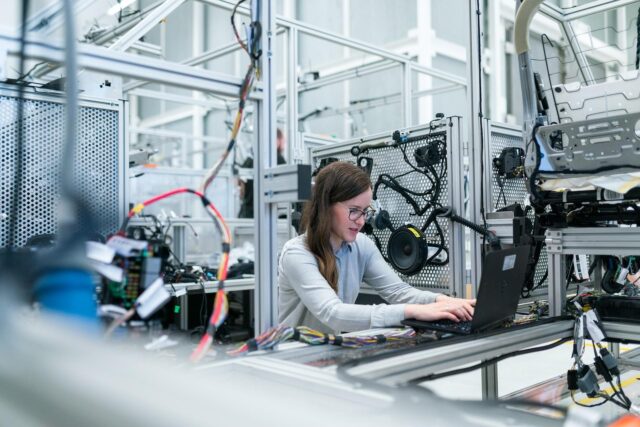
Precision and quality control are non-negotiable requirements in today’s manufacturing landscape. Industries worldwide, including aerospace, automotive, and electronics, are pushing the boundaries of what can be achieved when it comes to both accuracy and precision.
To meet these demands, manufacturers are turning to advanced metrology techniques for help. Metrology plays a crucial role in guaranteeing the quality, accuracy, and precision of its components and products. In this article, we’ll explore how metrology and coordinate measuring machines are redefining quality control in advanced manufacturing processes.
Metrology & Quality Control
Metrology’s importance in quality control cannot be overstated, especially in industries where safety and performance are paramount. In aerospace, even the slightest deviation in measurements can have drastic consequences. Additionally, the automotive industry relies on precision to optimize fuel efficiency and reduce emissions. Metrology ensures that components meet exact specifications, contributing to the reliability and performance of the final product.
High-Precision Measurement Instruments
A cornerstone of metrology’s role in quality control is its utilization of high-precision measurement instruments. These instruments, including Coordinate Measuring Machines (CMMs), laser trackers, and optical scanners, provide manufacturers with the means to measure intricate geometries and tolerances with microscopic accuracy. This level of precision allows manufacturers to detect even the tiniest defects or deviations, enabling timely corrective actions to prevent costly production errors.
Speed and Automation
Metrology technologies have not only improved precision but also speed and automation. Automated metrology systems and companies like CMMXYZ, equipped with robotic arms and advanced software, can rapidly inspect and measure large volumes of parts, reducing production cycle times. Real-time data analysis and feedback from metrology systems allow manufacturers to make immediate adjustments, preventing the accumulation of defective parts and minimizing waste.
Metrology & Advanced Technologies
The integration of metrology with cutting-edge technologies has transformed quality control in advanced manufacturing. Artificial intelligence (AI) and machine learning algorithms are being incorporated into metrology systems to analyze complex measurement data, identifying trends and anomalies. This not only enhances measurement accuracy but also enables predictive maintenance, reducing downtime and maintenance costs.
Metrology & Additive Manufacturing
Metrology plays a pivotal role in the development of additive manufacturing (3D printing). In 3D printing, precise layer-by-layer deposition of material is crucial for achieving the desired final product. Metrology ensures that each layer adheres to the prescribed dimensions, preventing structural weaknesses or deformities in the finished object. This application of metrology is particularly significant in industries like healthcare and aerospace, where 3D-printed components are increasingly utilized.
Conclusion
When it comes to advanced manufacturing, metrology and its machinery are known as a foundation of quality control. Its precision, automation, and integration with advanced technologies ensure that modern industries can meet the demands of safety, performance, and efficiency.
By identifying and addressing production inconsistencies early in the manufacturing process, metrology not only ensures product quality but also contributes to cost savings through reduced scrap rates and rework costs. As manufacturing continues to advance, metrology will remain at the forefront, shaping the future of quality control.


































